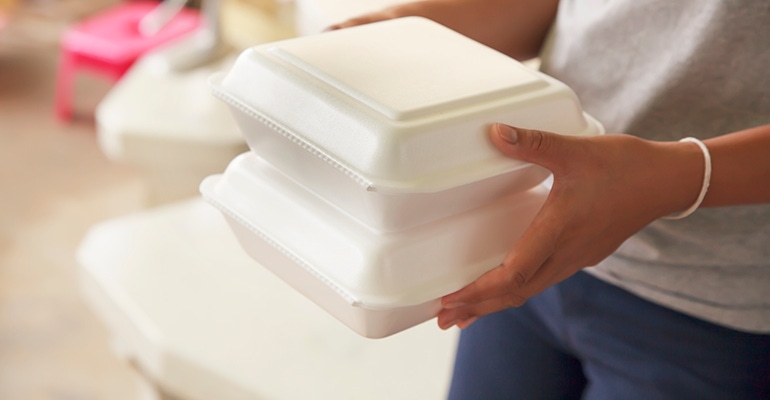Maine Becomes First State to Officially Ban Single-use Polystyrene
The measure, which will ban Styrofoam cups and containers, will go into effect January 1, 2021.

On April 30, Maine officially became the first state to ban single-use polystyrene, better known as Styrofoam, cups and containers.
According to an EcoWatch report, when signing the bill into law, Maine Gov. Janet Mills said the ban is “an important step forward in protecting our environment.” The measure will ban grocery stores, restaurants, coffee shops and food trucks, among other businesses, from using Styrofoam cups and containers. The bill will go into effect January 1, 2021.
In March, Hawaii and New Jersey announced they are considering some of the most stringent bans on plastic bags and Styrofoam containers in the country. Both proposals are making their way through their respective state senates.
In Maryland, Waterfront Partnership’s Healthy Harbor Initiative announced the trash wheel family—Mr. Trash Wheel, Professor Trash Wheel and Captain Trash Wheel—collected more than 1 million Styrofoam containers since the first wheel launched in 2014. That milestone was announced around the same time that a Styrofoam ban bill passed the House and Senate. A final version of the bill will now need to be signed by Maryland Gov. Larry Hogan to make the statewide ban official.
EcoWatch has more information:
Maine became the first state to officially ban single-use Styrofoam cups and containers on Tuesday.
Democratic Maine Governor Janet Mills called the bill an "important step forward in protecting our environment" when she signed it into law, The Associated Press reported.
The bill would ban grocery stores, restaurants, coffee shops, food trucks and other similar businesses from using cups or containers made from polystyrene, otherwise known as Styrofoam, The Portland Press Herald reported. The ban will go into effect January 1, 2021 and would not cover hospitals, seafood shippers or vendors of pre-packaged meat.
About the Author(s)
You May Also Like


